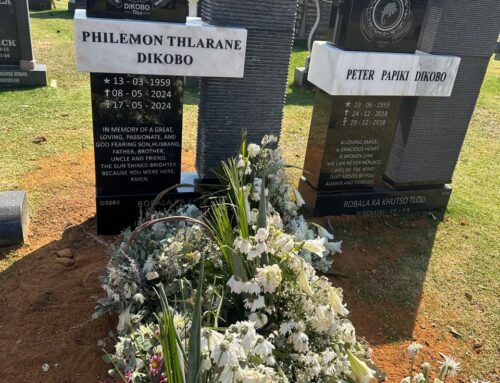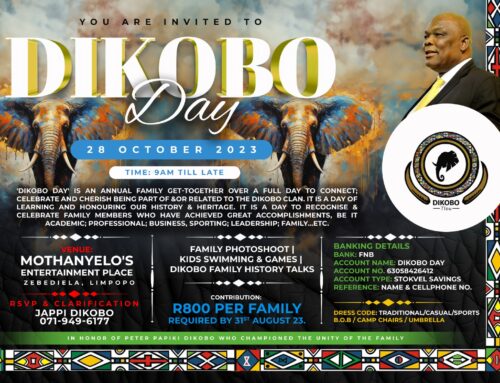Excerpt from https://en.wikipedia.org/wiki/Southern_Ndebele_people
The Southern African Ndebele are an eMbo ethnic group native to South Africa who speak Southern Ndebele, which is distinct both from the “Northern Transvaal Ndebele” languages, usually known as SiNdebele or SiSumayela, as well as the Zimbabwean Ndebele language. The former are the people of Gegana (Mthombeni) and the latter are the people of Mzilikazi’s “Matabele Empire”, whereas Southern Ndebele people are those of Ndzundza and Manala. Although sharing the same name, they should not be confused with (Mzilikazi‘s) Northern Ndebele people of modern Zimbabwe, a breakaway from the Zulu nation, with whom they came into contact only after Mfecane. Northern Ndebele people speak the Ndebele language.[1] Mzilikazi’s Khumalo clan (later called the Ndebele) have a different history (see Zimbabwean Ndebele language) and their language is more similar to Zulu and Xhosa.[2] Southern Ndebele mainly inhabit the provinces of Mpumalanga, Gauteng and Limpopo, all of which are in the northeast of the country.
HISTORY
The Southern Ndebele people’s history has been traced back to King Ndebele, King Ndebele fathered King Langa, King Langa fathered King Mntungwa (not to be confused with the Khumalo Mntungwa, because he was fathered by Mbulazi), King Mntungwa fathered King Jonono, King Jonono fathered King Nanasi, King Nanasi fathered King Mafana, King Mafana fathered King Mhlanga and Chief Libhoko, King Mhlanga fathered King Musi and Chief Skhube.
In order of ascendtion:
- Ndebele – 1400*
- Mkhalangwana – 1425*
- MntuNgwe II – 1450*
- Jonono – 1475*
- Nanasi – 1500*
- Mafana – 1525*
- Mhlanga – 1550*
- Musi – 1575*
- Ndzundza – (1600 – 1621)
- Mrhetjha – (1621 – 1642)
- Magobholi – (1642 – 1677)
- Bongwe – (1677 – 1693)
- Sindeni – (1693 – 1701)
- Mahlangu – (1701 – 1745)
- Phaswana – (1745 – 1756)
- Maridili – (1756 – 1765)
- Mdalanyana – (1765 – 1771)
- Mgwezana – (1771 – 1804)
- Dzela – (1804 – 1806)
- Mrhabuli – (1806 – 1811)
- Magodongo – (1811 – 1827)
- Sibhoko – (1827 – 1835)
- SoMdeyi – (1835 – 1840)
- Mabhoko – (1840 – 1865)
- Mkhephuli – (1865 – 1873)
- Rhobongo – (1873 – 1879)
- Nyabela – (1879 – 1902)
- Fene – (1902 – 1921)
- Mayitjha – (1921 – 1961)
- Mabusa Mabhoko II – (1961 – 1992)
- Nyumbabo Mayitjha II – (1992 – 2005)
- Sililo (2005 – 2005)
- Mbusi Mabhoko III – (2005 – present)
King Musi’s kraal was based at eMhlangeni a place named after his father Mhlanga, the name of the place is currently known as Randfontein (Mohlakeng) and later moved to KwaMnyamana which is now called Emarula or Bon Accord in Pretoria. King Musi was a polygamist and fathered the following sons, Skhosana (Masombuka), Manala (Mbuduma), Ndzundza (Hlungwana), Thombeni (Kekana or Gegana), Sibasa, Mhwaduba (Lekhuleni) Mphafuli and others.
The first born son of king Musi was Skhosana from the third wife, he also was called Masombuka. The name “sombuka” means to begin; hence the first son was called Masombuka. Manala was the first son from the great wife and Ndzundza was the son of the second wife. According to Ndebele custom, the heir to the throne of the king is the first born son from the great wife; hence Manala was the heir to the Ndebele throne.
When the great wife of King Musi died, King Musi was blind through old age and was sickly. He was nursed by his surviving second wife and mother of Ndzundza. Due to the fact that Musi was very old, he was also worried about the Kingship of the Ndebele Nation. Musi did not want Manala to be the King of the Nation hence one day Musi instructed Manala to come and see him in the morning. Musi then instructed Manala to go and hunt for the iMbuduma (Wildebeest) and this was a ploy to keep Manala away from the household in order to hand over the kingship to Ndzundza.
After Manala had left to hunt for the Wildebeest Musi instructed his wife to call her son Ndzundza. King Musi then gave Ndzundza the accessory to the throne, customarily passed on from the incumbent to the successor. Musi knew that if he died naturally then, the kingship will be passed to Manala, hence he passed the kingship to Ndzundza while he was alive, and this was not common at that time for a king to give his son rulership while the king is still alive. This accessory called namrhali was a mysterious object that cries like a child, used to fortify the king.
Musi then instructed Ndzundza to call a Royal meeting (Imbizo) and notify the nation that he is the King and also to live kwaMnyamana with his followers. Many people believed him and a few did not want to follow him. Ndzundza then left with a huge number of people. When Manala came back from the hunt he realised that Ndzundza had received the namrhali, he then went to see his father. His father informed him that he had already given away the namrhali to Ndzundza. Manala called a Royal meeting (imbizo) with the few people left behind and announced that Ndzundza had stolen the namrhali. Musi then instructed Manala that if he really wants to be a king he must pursue Ndzundza and bring him back to the royal household and if Ndzundza refuses to come back Manala should kill him.
Manala caught up with Ndzundza who was with Thombeni (Kekana) and Skhosana (Masombuka), his half brothers, at Masongololo around Cullinan. The two factions fought at Cullinan. Manala and his supporters returned home to replenish their provisions. Upon their return, they caught up with Ndzundza at Bhalule River (Oliphants River). Manala did not kill Ndzundza but an old woman called NoQoli from a Mnguni family mediated between the two brothers. An agreement was reached whereby Manala surrendered the kingship to Ndzundza. It was further agreed that henceforth their daughters would inter-marry, a practice which later died out. The agreement was called “isivumelwano sakoNoQoli” and hence the Mnguni family was later called Msiza because they helped Ndzundza and Manala not to kill each other. Ndzundza never returned to the royal household but settled across the Bhalule River with his followers. Ndzundza settled across the Bhalule River whilst Manala returned to KwaMnyamana and each ruled separately.
Dlomu the son of Skhube went to Emboland, and became the father of the amaNdebele clan in Hlubiland which were later dominated by King Matiwane of the Hlubis. Some of Dlomu’s descendants later joined the Manala and Ndzundza under the shield of Skhosana. Mhwaduba formed a Batswana traditional community and became the originator of the Bahwaduba clan (Mhwaduba of Bakgatla Ba Lekhuleni). Thombeni left and joined Ndzundza but later hived along the Olifants River and established the Gegana (Kekana) traditional community in Zebediela known as Matebele a Moletlane and later the Mthombeni traditional community among VaTsonga. Sibasa left and joined the VhaVenda community and was later known as Tshivhase amongst the Venda nation. Mphafuli (later called Mphaphuli) joined Sibasa and usurped the leadership of the Vhavenda traditional community.






